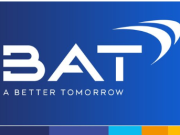The iQOS device, is a Heat not Burn (HnB) smokeless alternative to combustible cigarettes and works by heating tobacco leaves known as Heets or HeatSticks. These refills which look like short cigarettes, must be inserted into the device and are heated up once iQOS is turned on. They are sold by Philip Morris under the Marlboro brand (depending on the country) for approximately the same price as their combustible counterparts.
PMI launched the product in Japan in April 2016, and it was immediately sold out. By March 2017, the tobacco company had already sold over 3 million devices and President of Philip Morris Japan, Paul Riley, had said that they were struggling to keep up with the demand. “But the question is what is the demand? We continue to increase the production but they get sold out as soon as they hit the stores,” he said at the time.
The iQOS MRTP Application
In December 2016 PMI submitted an application to the US FDA to have iQOS certified as a modified risk product. To support the application they assembled more than a million pages of data and analysis based on tests of the product.
However, last month a panel voted against iQOS rejecting the claim that switching to iQOS reduces the risk of tobacco-related disease and that switching to device reduces health risks associated with smoking. Finally the only claim supported by the FDA, was the one claiming that iQOS significantly reduces exposure to harmful chemicals.
Japan has the ideal conditions for HnB products to flourish
Analysts at ECigIntelligence, an independent e-cigarette and tobacco-alternatives market analytical resource, believe that the products “will play an important role in the future of the US tobacco alternatives market no matter what the FDA eventually decides.” However, in spite of whether they are endorsed or not, the analysts do not believe that the products will ever reach the same level of success they have reached in Japan.
ECigIntelligence Editorial Director, Barnaby Page, said: “We expect heated tobacco may well have a strong role to play in the market, but those enthused by its commercial potential should consider all the issues. Undoubtedly it has plenty of positives for both the consumer and the industry, but exactly how it will co-exist with both conventional cigarettes and e-cigarettes remains open to question.”
A large number of e-cigarette users still unaware of HnB products
The analysts have based their predictions on a number of variables. Firstly, a vast majority of vapers are still not aware of the products. Secondly, the setting in Japan was ideal for the product to flourish. The vaping market in Japan is very small due to harsh nicotine restrictions, coupled with the country’s general interest in technology and low restrictions on tobacco advertising. “Even without reduced-risk approval, IQOS can succeed in the US – though it may never equal the performance seen in Japan,” concluded Page.
A recently published study by the independent Committee on Toxicity of Chemicals in Food, Consumer Products and the Environment (COT) which reviewed two “heat-not-burn” products amongst which iQOS, found the products to be safer than regular cigarettes.













Nobody in the US will buy IQOS unless and until FDA approves the PMTA submitted by PMI.
It would be helpful if this article had revealed the following pertinent facts:
– FDA banned sales of all new vapor products that weren’t on the market by 8/8/2016,
– FDA banned truthful health claims by vapor manufacturers on 8/8/2016,
– FDA banned the sales of all other vapor products on 8/8/2018, but recently extended its vapor prohibition day by four years until 8/8/2022,
– FDA has done nothing to prevent or remove thousands (perhaps tens of thousands) of vapor products that have been introduced into the US market since 8/8/2016,
– FDA’s 2016 Deeming Rule protects cigarettes from market competition by thousands of small vapor companies whose products are far less harmful than cigarettes and have helped millions of smokers quit smoking, and
– FDA CTP director Mitch Zeller has deceptively claimed he embraces the continuum of risk for nicotine products, and that he supports tobacco harm reduction for the past 15 years at the same time he was lobbying Congress to ban all new THR products (via the Tobacco Control Act) and at the same time he implemented FDA’s Deeming Rule (that bans all vapor products).
Had Japan not banned all e-cigarettes (and had Japan not strictly enforced its e-cig ban for many years), IQOS sales in Japan may have been vastly different than what has transpired.
In sum, its a lot easier to sell lots of THR products to smokers if/when government health agencies ban the sale of all competitive THR products. But sales of government approved THR products may not be very lucrative if governments don’t strictly enforce their sales bans on competitive THR products.
Sold for, “…approximately the same price as their combustible counterparts.” In the UK at least, this will prevent their use becoming widespread. The average 14 a day smoker now spends upwards of £40 a week if he buys his cigarettes legally. Vaping costs me less than £1 a week. I stockpiled several years’ supply of 7.2% cheaply bought nicotine before it was banned by the EU Tobacco Products Directive, lobbied for at great expense by both the tobacco companies and the pharmaceutical manufacturers of nicotine gum and inhalers . Even for those forced to buy ready diluted 1.8% nicotine in environmentally damaging (yes, the EU again) 10ml bottles, liquid to replicate the nicotine intake from their previous smoking habit will typically cost less than £5 a week. That is, if the 1.8% maximum permitted concentration is sufficiently strong to take away the cravings. The only hope the Tobacco companies have, is to get excise taxes introduced for eliquid, as they managed to do in Italy; or, lobby the EU for further regulations on vaping to render it less attractive. eg vaping bans.